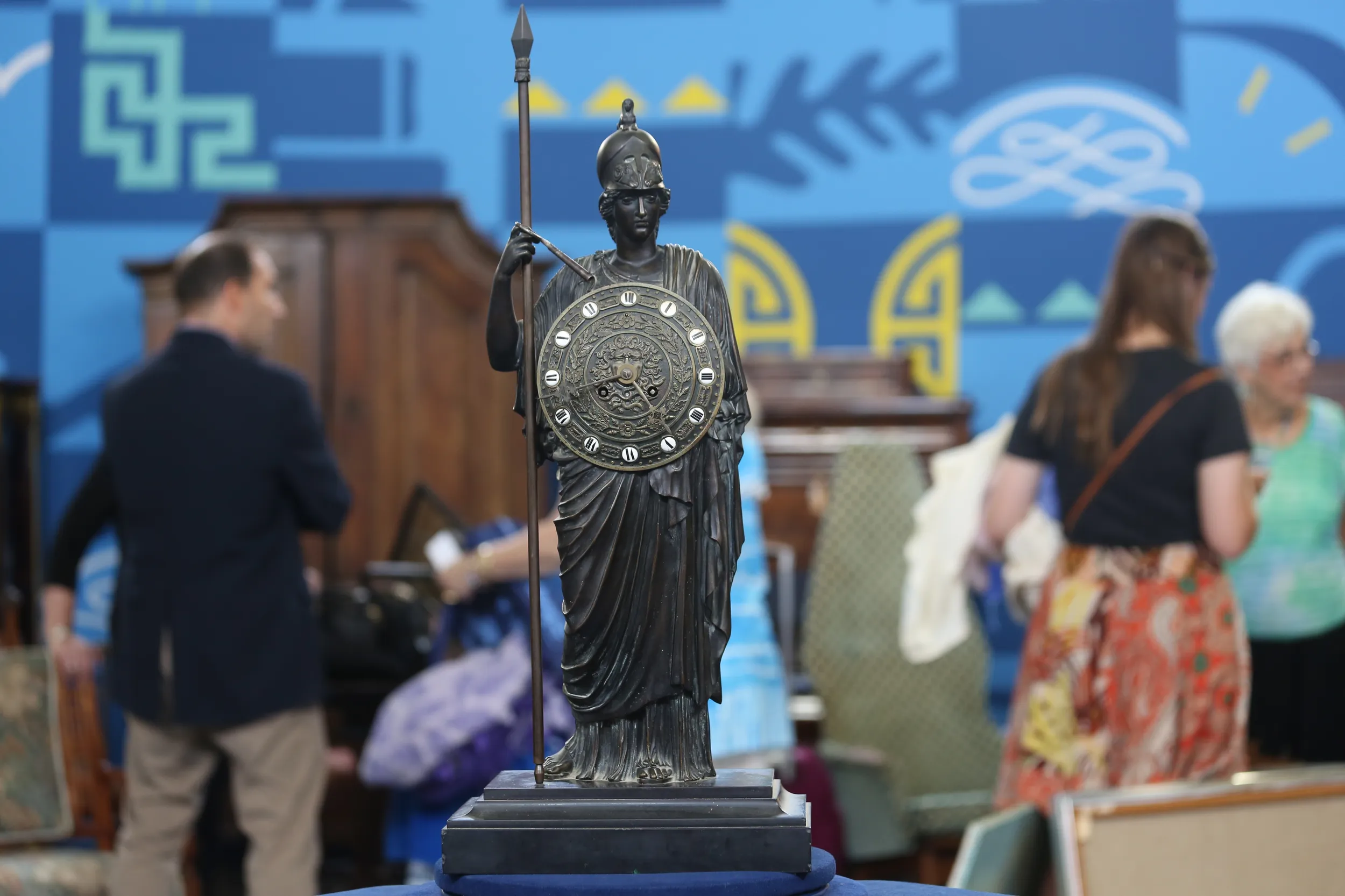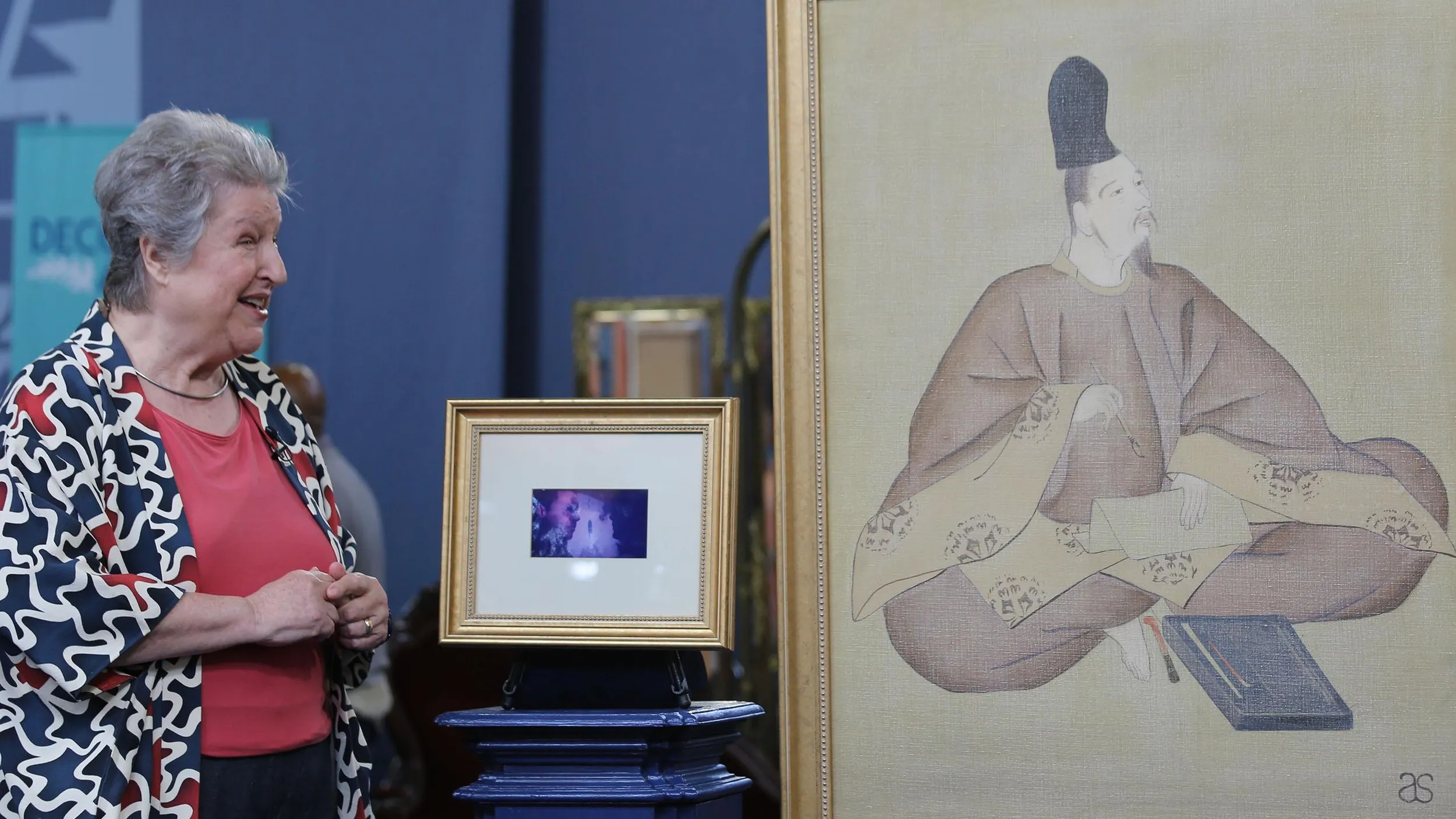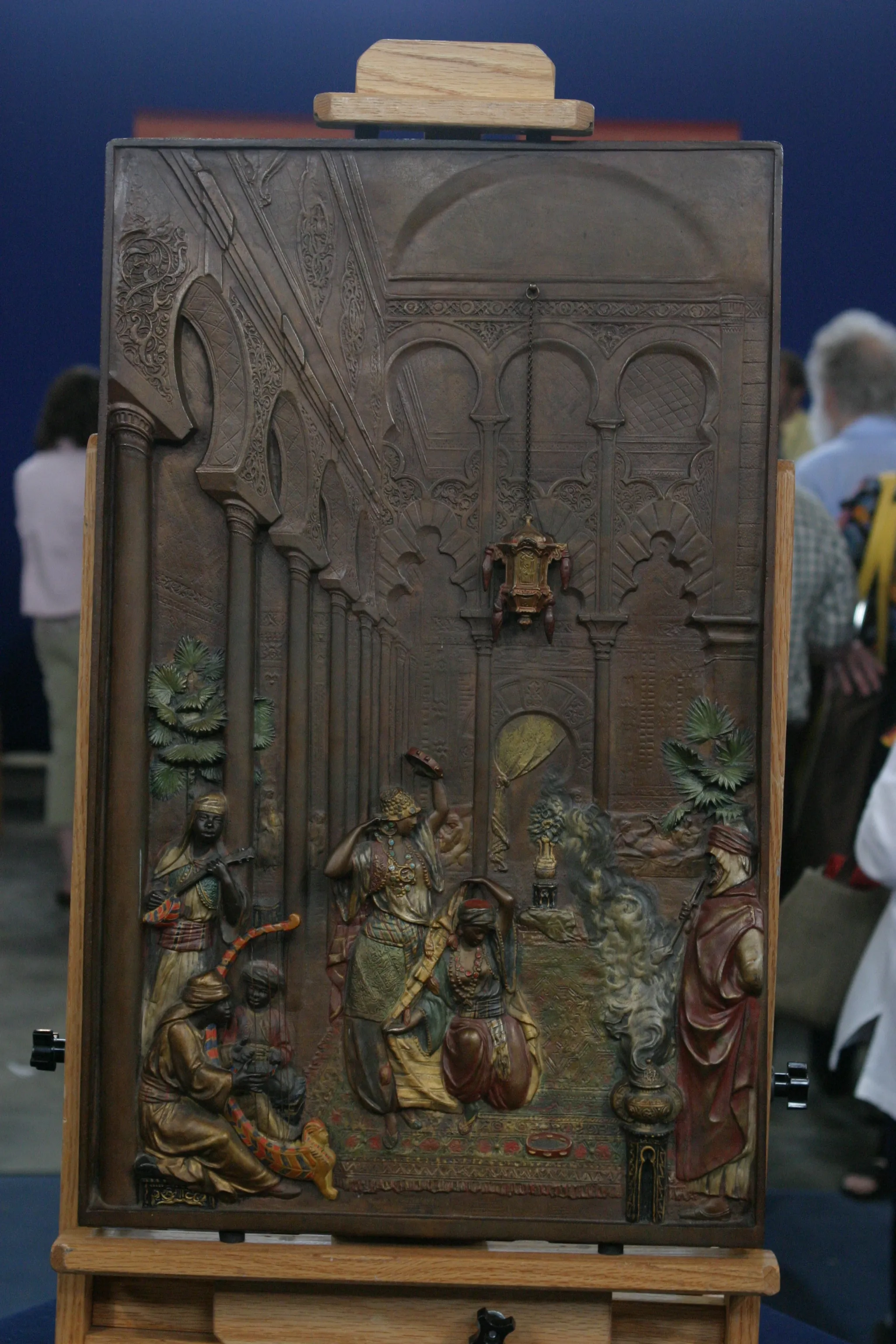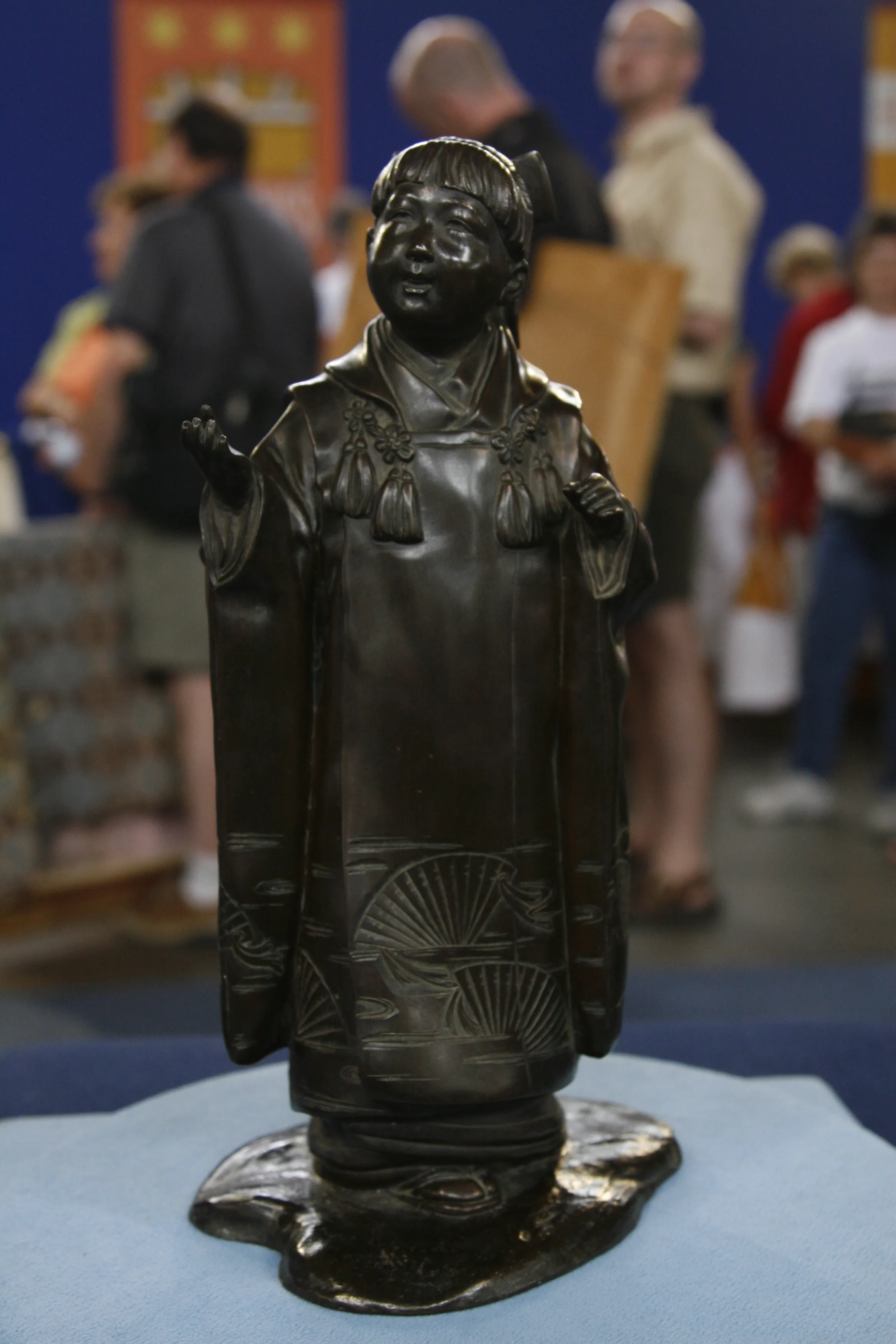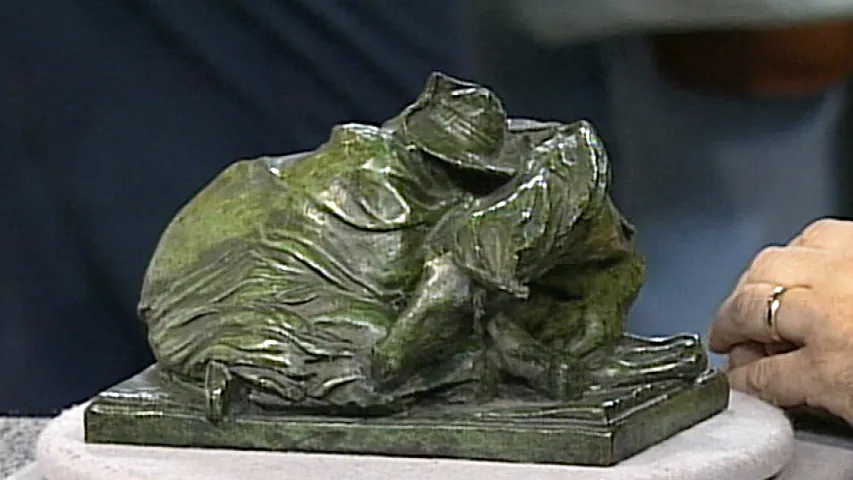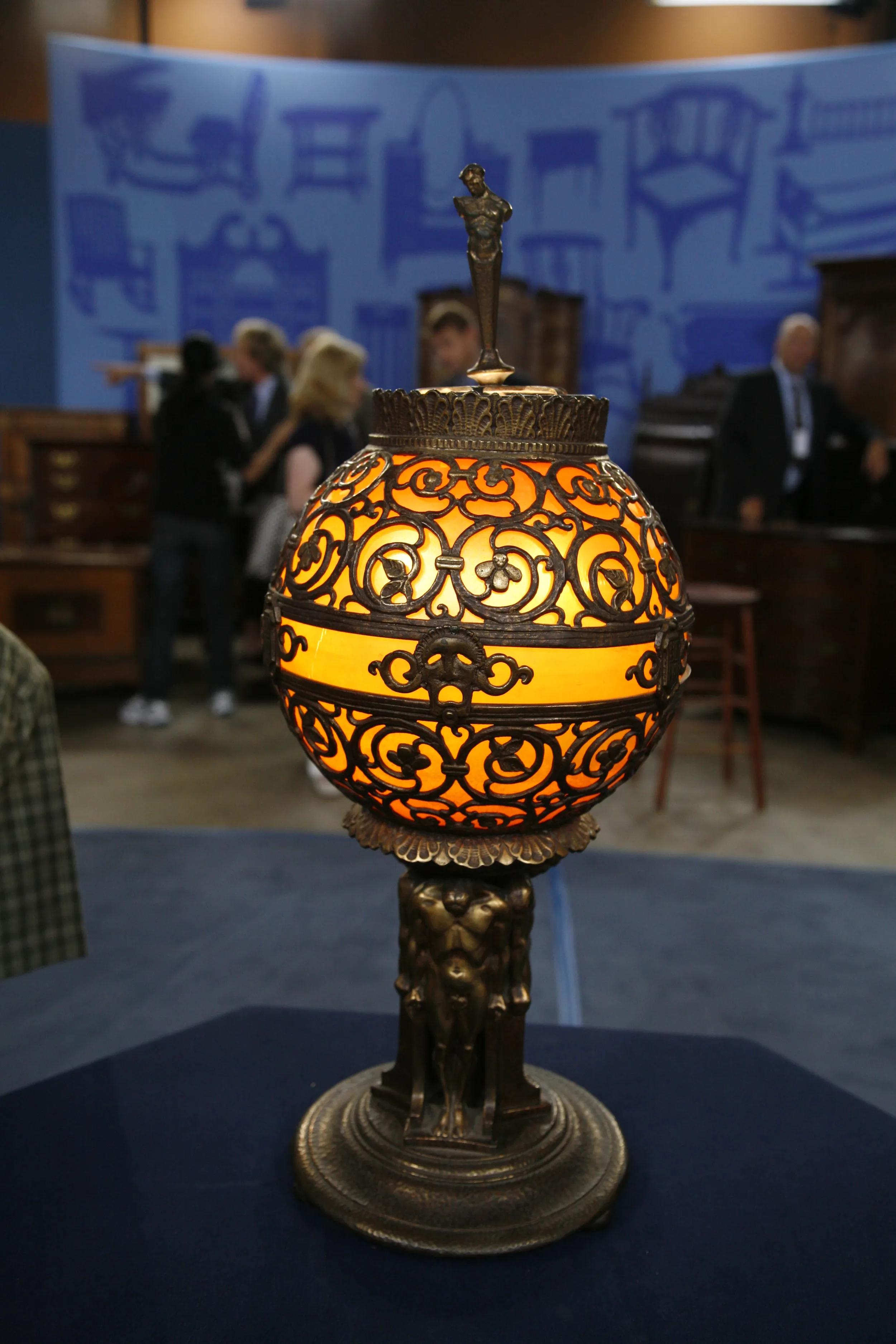GUEST: I brought you a clock that's been in my family for many, many, years. Longer than I have. It was my godmother's, and she lived in New Orleans. And I was her favored child-- she had no children.
APPRAISER: Yes.
GUEST: And so when she passed on, in her will, she left me many items and this was one of them. Her husband was from France, so it could have some French influence, but I'm not aware of anything like that. I'm totally ignorant. So you have to tell me all the goodies about it.
APPRAISER: Well, I could do that. The clock is French. We call them Neoclassical form. It's bronze, you probably knew that just by picking up the clock.
GUEST: No, I didn't, but I thought perhaps it was. At one time, I wanted to polish it, and everybody said, "Oh, no, no, no, don't touch it."
APPRAISER: I'm proud you didn't.
GUEST: Yeah.
APPRAISER: This is the original finish on this clock. So you have a bronze statue. It's on a Belgian slate base. The dial, notice these little porcelain cartouche numbers. We don't see it real often, but look at the quality of the bronze itself. The draped fabric and the attention to detail and finish on it is superior. Here in New Orleans, we see a lot of French clocks. I didn't see any marking as to who the founder was on this…
GUEST: Uh-huh.
APPRAISER: …which isn't unusual. The clock dates from about 1850.
GUEST: I'm delighted.
APPRAISER: It's an eight-day clock. That means it runs for a week on a winding. Have you ever had it running?
GUEST: Yes, I have.
APPRAISER: These are usually good runners. These are Paris-made movements in these clocks and Paris-made castings. So basically, the people that cast the case, that was a different trade than the people that made the mechanism. And so the French movement is not marked, I looked at it earlier, but it is the original movement to the clock. And it's not atypical for them to be unmarked. And I see you have the perfect spot to keep the winding key, on top of the spear.
GUEST: It is about the only place we can keep up with it.
APPRAISER: Did you know who the subject was?
GUEST: I have no idea.
APPRAISER: This is Athena.
GUEST: Really?
APPRAISER: She was the goddess of war and wisdom.
GUEST: Uh-huh.
APPRAISER: In the back of the clock, there's a little hatch to come in and access the mechanism. Again, this may have stood in front of a mirror, so you could see the drapery in the rear.
GUEST: Yes.
APPRAISER: But if you just turn this little knob, this little access hatch comes off, and gives us an opportunity to access both the bell and the movement. Oh, I saw the number on the movement, number 20. That same number's on the back of the mechanism, too.
GUEST: That's good.
APPRAISER: Which is nice. The more original you can have a clock, the better it is. Now, the bell has been replaced. It's not atypical for them to get dropped, and they would just shatter.
GUEST: Okay.
APPRAISER: The clock, I would probably say that the retail value on it today would probably be in about the $4,000 to $4,500 range.
GUEST: How delightful!

